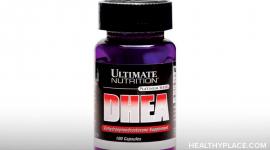Potassium

Comprehensive information on potassium mineral supplements. Learn about the usage, dosage, side-effects of potassium.
- Overview
- Uses
- Dietary Sources
- Available Forms
- How to Take It
- Precautions
- Possible Interactions
- Supporting Research
Overview
Potassium is a mineral that helps the kidneys function normally. It also plays a key role in cardiac, skeletal, and smooth muscle contraction, making it an important nutrient for normal heart, digestive, and muscular function. A diet high in potassium from fruits, vegetables, and legumes is generally recommended for optimum heart health.
Having too much potassium in the blood is called hyperkalemia and having too little in the blood is known as hypokalemia. Proper balance of potassium in the body depends on sodium. Therefore, excessive use of sodium may deplete the body's stores of potassium. Other conditions that can cause potassium deficiency include diarrhea, vomiting, excessive sweating, malnutrition, and use of diuretics. In addition, coffee and alcohol can increase the amount of potassium excreted in the urine. Adequate amounts of magnesium are also needed to maintain normal levels of potassium.
For most people, a healthy diet rich in vegetables and fruits provides all of the potassium needed. The elderly are at high risk for developing hyperkalemia due to decreased kidney function that often occurs as one ages. Older people should be careful when taking medication that may further affect potassium levels in the body, such as nonsteroidal anti-inflammatories (NSAIDs) and ACE inhibitors (see section on Interactions for additional information). Taking potassium supplements, at any age, should only be done under the guidance of a healthcare provider.
Uses
Hypokalemia
The most important use of potassium is to treat the symptoms of hypokalemia, which include weakness, lack of energy, muscle cramps, stomach disturbances, an irregular heartbeat, and an abnormal EKG (electrocardiogram, a test that measures heart function). Treatment of this condition takes place under the guidance and direction of a physician.
Osteoporosis
High dietary intake of potassium from fruits and vegetables throughout one's life helps to preserve bone mass thereby preventing bone loss that can lead to osteoporosis.
High Blood Pressure
Some studies have linked low dietary potassium intake with high blood pressure. The Joint National Committee on Prevention, Detection, Evaluation, and Treatment of High Blood Pressure recommends adequate amounts of potassium in the diet, along with other measures such as dietary calcium and weight loss, to prevent the development of high blood pressure. Similarly, the Dietary Approaches to Stop Hypertension (DASH) diet emphasizes eating foods rich in fruits, vegetables, and low- or non-fat dairy products to provide high intake of potassium, as well as magnesium and calcium.
While appropriate and adequate dietary intake is necessary for preventing or improving blood pressure, potassium supplements are probably not. Some animal and early human studies did suggest that potassium supplements could help to lower blood pressure. More recent well-designed studies, however, suggest that potassium supplements do not improve blood pressure significantly. Use of potassium supplements for blood pressure, therefore, depends on the medications you are taking and the instructions of your doctor.
Stroke
In several population based studies evaluating very large groups of men and women over time, a diet rich in potassium was associated with a reduced risk of stroke. For the men, this seems to be particularly true among those with high blood pressure and/or those taking diuretics (blood pressure medications that help the kidneys eliminate sodium and water from the body). Potassium supplements, however, do not seem reduce the risk of stroke.
Inflammatory Bowel Disease (IBD)
Amongst other nutrient deficiencies, people with IBD (namely, ulcerative colitis or Crohn's disease) often have low levels of potassium. Your doctor will determine if supplementation with potassium is necessary.
Asthma
Several studies have suggested that diets low in potassium are associated with poor lung function and even asthma in children compared to those who eat normal amounts of potassium. Enhancing dietary intake of potassium through foods such as fish, fruits, and vegetables may, therefore, prove to be of value for preventing or treating asthma.
Dietary Sources for Potassium
The best dietary sources of potassium are fresh unprocessed foods, including meats, fish, vegetables (especially potatoes), fruits (especially avocados, dried apricots, and bananas), citrus juices (such as orange juice), dairy products, and whole grains. Most potassium needs can be met by eating a varied diet with adequate intake of milk, meats, cereals, vegetables, and fruits.
Available Forms of Potassium
There are several potassium supplements on the market, including potassium acetate, potassium bicarbonate, potassium citrate, potassium chloride, and potassium gluconate.
Potassium can also be found in multivitamins.
How to Take Potassium
Potassium supplements, other than the small amount included in a multivitamin, should only be taken under the specific guidance and instruction of a healthcare provider. This is particularly true for children.
The recommended daily intakes of dietary potassium are listed below:
Pediatric
- Infants birth to 6 months: 500 mg or 13 mEq
- Infants 7 months to 12 months: 700 mg or 18 mEq
- Children 1 year: 1000 mg or 26 mEq
- Children 2 to 5 years: 1400 mg or 36 mEq
- Children 6 to 9 years: 1600 mg or 41 mEq
- Children over 10 years: 2000 mg or 51 mEq
Adult
- 2000 mg or 51 Meq, including for pregnant and nursing women.
Precautions
Because of the potential for side effects and interactions with medications, dietary supplements should be taken only under the supervision of a knowledgeable healthcare provider. In the case of potassium, this is particularly important in the elderly.
Diarrhea and nausea are two common side effects from potassium supplements. Other potential adverse effects include muscle weakness, slowed heart rate, and abnormal heart rhythm.
Excessive amounts of the herb licorice (not licorice candy) and caffeine-containing herbs (such as cola nut, guarana, and possible green and black tea) can lead to loss of potassium.
Potassium must not be used by people with hyperkalemia.
Possible Interactions
If you are currently being treated with any of the following medications, you should not use potassium without first talking to your healthcare provider.
Potassium levels may be increased by the following medications:
- Nonsteroidal anti-inflammatory drugs (NSAIDs; such as ibuprofen, piroxicam, and sulindac): This interaction is particularly likely to occur in people with decreased kidney function.
- ACE inhibitors (such as captopril, enalapril, and lisinopril): This interaction is particularly likely to occur in people who are taking NSAIDs, potassium-sparing diuretics (such as spironolactone, triamterene, or amiloride), or salt substitutes along with the ACE inhibitor. A rise in potassium from ACE inhibitors may also be more likely in people with decreased kidney function and diabetes.
- Heparin (used for blood clots)
- Cyclosporine (used following a transplant to suppress the immune system)
- Trimethoprim (an antibiotic)
- Beta-blockers (such as metoprolol and propranolol that are used to treat high blood pressure)
Potassium levels may be decreased by the following medications:
- Thiazide diuretics (such as hydrochlorothiazide)
- Loop diuretics (such as furosemide and bumetanide)
- Corticosteroids
- Amphotericin B
- Antacids
- Insulin
- Theophylline (used for asthma)
- Laxatives
Please refer to the depletions monographs related to these medications for additional information. A healthcare practitioner will determine whether potassium supplements are needed when individuals are taking these medications.
Other potential interactions include:
- Digoxin: Low blood levels of potassium increase the likelihood of toxic effects from digoxin, a medication used to treat abnormal heart rhythms. Normal levels of potassium should be maintained during digoxin treatment which will be measured and directed by the healthcare provider.
back to: Supplement-Vitamins Homepage
Supporting Research
Alappan R, Perazella MA, Buller GK, et al. Hyperkalemia in hospitalized patients treated with trimethoprim-sulfamethoxazole. Ann Intern Med. 1996;124(3):316-320.
Appel LJ. Nonpharmacologic therapies that reduce blood pressure: a fresh perspective. Clin Cardiol. 1999;22(Suppl. III):III1-III5.
Apstein C. Glucose-Insulin-Potassium for acute myocardial infraction: remarkable results from a new prospective, randomized trial. Circ. 1998;98:2223 - 2226.
Apstein CS, Opie Lh. Glucose-insulin-potassium (GIK) for acute myocardial infarction: a negative study with a positive value. Cardiovasc Drugs Ther. 1999;13(3):185-189.
Ascherio A, Rimm EB, Hernan MA, et al. Intake of potassium, magnesium, calcium, and fiber and risk of stroke among U.S. men. Circ. 1998;98:1198 - 1204.
Brancati FL, Appel LJ, Seidler AJ, Whelton PK. Effect of potassium supplementation on blood pressure in African Americans on a low-potassium diet. Arch Intern Med. 1996;156:61 - 72.
Brater DC. Effects of nonsteroidal anti-inflammatory drugs on renal function: focus on cyclooxygenase-2-selective inhibition. Am J Med. 1999;107(6A):65S-70S.
Burgess E, Lewanczuk R, Bolli P, et al. Lifestyle modifications to prevent and control hypertension. 6. Recommendations on potassium, magnesium and calcium. Canadian Hypertension Society, Canadian Coalition for High Blood Pressure Prevention and Control, Laboratory Centre for Disease Control at Health Canada, Heart and Stroke Foundation of Canada. CMAJ. 1999;160(9 Suppl):S35-S45.
Cappuccio EP, MacGregor GA. Does potassium supplementation lower blood pressure? A meta-analysis of published trials. J Hypertens. 1991;9:465-473.
Chiu TF, Bullard MJ, Chen JC, Liaw SJ, Ng CJ. Rapid life-threatening hyperkalemia after addition of amiloride HCL/hydrochlorothiazide to angiotensin-converting enzyme inhibitor therapy. Ann Emerg Med. 1997;30(5):612-615.
Gilliland FD, Berhane KT, Li YF, Kim DH, Margolis HG. Dietary magnesium, potassium, sodium, and children's lung funtion. Am J Epidemiol. 2002. 15;155(2):125-131.
Hermansen K. Diet, blood pressure and hypertension. Br J Nutr. 2000:83(Suppl 1):S113-119.
Heyka R. Lifestyle management and prevention of hypertension. In: Rippe J, ed. Lifestyle Medicine. 1st ed. Malden, Mass: Blackwell Science; 1999:109-119.
Hijazi N, Abalkhail B, Seaton A. Diet and childhood asthma in a society in transition: a study in urban and rural Saudi Arabia. Thorax. 2000;55:775-779.
Howes LG. Which drugs affect potassium? Drug Saf. 1995;12(4):240-244.
Iso H, Stampfer MJ, Manson JE, et al. Prospective study of calcium, potassium, and magnesium intake and risk of stroke in women. Stroke. 1999;30(9):1772-1779.
Joint National Committee. Sixth Report of the Joint National Committee on Prevention, Detection, Evaluation and Treatment of High Blood Pressure. Arch Int Med. 1997;157:2413-2446.
Kendler BS. Recent nutritional approaches to the prevention and therapy of cardiovascular disease. Prog Cardiovasc Nurs. 1997;12(3):3-23.
Krauss RM, Eckel RH, Howard B, et al. AHA dietary guidelines. Revision 2000: A statement for healthcare professionals from the Nutrition Committee of the American Heart Association. Circulation. 2000;102:2284-2299.
Matsumura M, Nakashima A, Tofuku Y. Electrolyte disorders following massive insulin overdose in a patient with type 2 diabetes. Intern Med. 2000;39(1):55-57.
Newnham DM. Asthma medications and their potential adverse effects in the elderly: recommendations for prescribing. Drug Saf. 2001;24(14):1065-1080.
Olukoga A, Donaldson D. Liquorice and its health implications. J Royal Soc Health. 2000;120(2):83-89.
Pasic S, Flannagan L, Cant AJ. Liposomal amphotericin is safe in bone marrow transplantation for primary immunodeficiency. Bone Marrow Transplant. 1997;19(12):1229-1232.
Perazella MA. Trimethoprim-induced hyperkalemia: clinical data, mechanism, prevention and management. Drug Saf. 2000;22(3):227-236.
Perazella M, Mahnensmith R. Hyperkalemia in the elderly. J Gen Intern Med. 1997;12:646 - 656.
Physicians' Desk Reference. 55th ed. Montvale, NJ: Medical Economics Co., Inc.; 2001:1418-1422, 2199-2207.
Poirier TI. Reversible renal failure associated with ibuprofen: case report and review of the literature. Drug Intel Clin Pharm. 1984;18(1):27-32.
Preston RA, Hirsh MJ MD, Oster, JR MD, et al. University of Miami Division of Clinical Pharmacology therapeutic rounds: drug-induced hyperkalemia. Am J Ther. 1998; 5(2):125-132.
Ray K, Dorman S, Watson R. Severe hyperkalemia due to the concomitant use of salt substitutes and ACE inhibitors in hypertension: a potentially life threatening interaction. J Hum Hypertens. 1999;13(10):717-720.
Reif S, Klein I, Lubin F, Farbstein M, Hallak A, Gilat T. Pre-illness dietary factors in inflammatory bowel disease. Gut. 1997;40:754-760.
Sacks FM, Willett WC, Smith A, et al. Effect on blood pressure of potassium, calcium, and magnesium in women with low habitual intake. Hypertens. 1998;31(1):131 - 138.
Shionoiri H. Pharmacokinetic drug interactions with ACE inhibitors. Clin Pharmacokinet. 1993;25(1):20-58.
Singh RB, Singh NK, Niaz MA, Sharma JP. Effect of treatment with magnesium and potassium on mortality and reinfarction rate of patients with suspected acute myocardial infarction. Int J Clin Pharmacol Thera. 1996;34:219 - 225.
Stanbury RM, Graham EM. Systemic corticosteroid therapy - side effects and their management. Br J Ophthalmol. 1998;82(6):704-708.
Suter PM. Potassium and Hypertension. Nutrition Reviews. 1998;56:151 - 133.
Tucker KL, Hannan Mt, Chen H, Cupples LA, Wilson PW, Kiel DP. Potassium, magnesium, and fruit and vegetable intakes are associated with greater bone mineral density in elderly men and women. Am J Clin Nutr. 1999;69(4):727-736.
Whang R, Oei TO, Watanabe A. Frequency of hypomagnesia in hospitalized patients receiving digitalis. Arch Intern Med. 1985;145(4):655-656.
Whelton, A, Stout RL, Spilman PS, Klassen DK. Renal effects of ibuprofen, piroxicam, and sulindac in patients with asymptomatic renal failure. A prospective, randomized, crossover comparison. Ann Intern Med. 1990;112(8):568-576.
Young DB, Lin H, McCabe RD. Potassium's cardiovascular protective mechanisms. Am J Physiology. 1995;268(part 2):R825 - R837.
back to: Supplement-Vitamins Homepage
APA Reference
Staff, H.
(2008, December 21). Potassium, HealthyPlace. Retrieved
on 2025, April 20 from https://www.healthyplace.com/alternative-mental-health/supplements-vitamins/potassium



